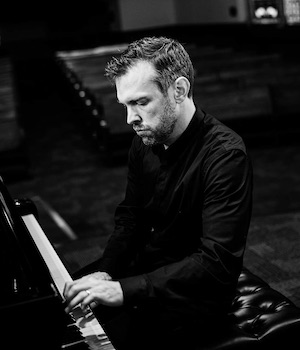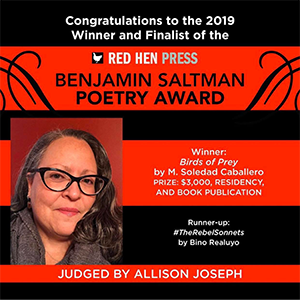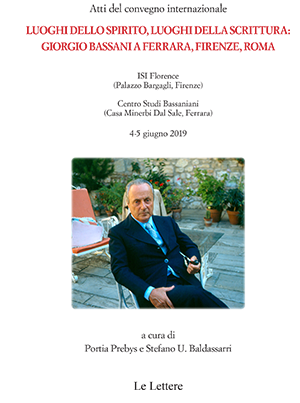
People & Places is published monthly during the academic year by the Office of College Relations. It reports on the professional activities of members of the College community and highlights student achievement.
April Thompson, vice president of student life and dean of students, and Ian Binnington, College registrar and dean of curriculum, facilitated a roundtable discussion at the annual meeting of the Association of American Colleges & Universities (AAC&U) in Washington, D.C., in January 2020. Their roundtable, “When Deans Align: An Integrative Partnership between Student Life and Academic Affairs,” reflected on recent attempts to integrate academic affairs deans, faculty, and other personnel into areas traditionally regarded as the purview of Student Life—specifically new student orientation and the weekly students of concern meeting. Binnington also participated in a second panel at the same conference. Titled “Breaking Down the Silos: Genuine Academic Engagement with Institution-Wide Retention,” the panel involved other colleges from the Gardner Institute’s Retention Performance Management (RPM) program. On a similar theme, this panel discussed the ways in which campuses have sought the full engagement of the campus community in evidence-based retention initiatives.
 Douglas Jurs, assistant professor of music, was a Musician in Residence at the Banff Centre for the Arts in Canada in January, and a featured performer at the Oh My Ears New Music Festival in Phoenix in February. He presented world premieres by Iranian composer Aftab Darvishi and American composer (and Bucknell University professor) Daniel Temkin.
Douglas Jurs, assistant professor of music, was a Musician in Residence at the Banff Centre for the Arts in Canada in January, and a featured performer at the Oh My Ears New Music Festival in Phoenix in February. He presented world premieres by Iranian composer Aftab Darvishi and American composer (and Bucknell University professor) Daniel Temkin.
 Associate Professor of English and Director of Writing Alexis Hart and her co-author Roger Thompson have published Writing Programs, Veterans Studies, and the Post-9/11 University: A Field Guide in the Studies in Writing and Rhetoric series from the National Council of Teachers of English (NCTE) and Conference on College Composition and Communication (CCCC). The book offers “rich academic inquiry into the idea of ‘the veteran’ as well as into ways that veteran culture has been fostered or challenged in writing classrooms, in writing centers, and in college communities more generally. Presenting a more nuanced approach to understanding ‘the veteran’ leads not only to more useful research, but also to more wide-ranging and significant scholarship and community engagement. Such an approach recognizes veterans as assets to the college campus, encourages institutions to customize their veterans programs and courses, and leads to more thoughtful engagement with veterans in the writing classroom.”
Associate Professor of English and Director of Writing Alexis Hart and her co-author Roger Thompson have published Writing Programs, Veterans Studies, and the Post-9/11 University: A Field Guide in the Studies in Writing and Rhetoric series from the National Council of Teachers of English (NCTE) and Conference on College Composition and Communication (CCCC). The book offers “rich academic inquiry into the idea of ‘the veteran’ as well as into ways that veteran culture has been fostered or challenged in writing classrooms, in writing centers, and in college communities more generally. Presenting a more nuanced approach to understanding ‘the veteran’ leads not only to more useful research, but also to more wide-ranging and significant scholarship and community engagement. Such an approach recognizes veterans as assets to the college campus, encourages institutions to customize their veterans programs and courses, and leads to more thoughtful engagement with veterans in the writing classroom.”
 Associate Professor of English Soledad Caballero‘s poem “Myths We Tell,” selected by Carolyn Forché, won the Joy Harjo Poetry Award and will be published in March 2020 in Cutthroat Journal: a journal of the arts. Caballero is the recipient of the 2019 Benjamin Saltman Poetry Award for her manuscript, Birds of Prey, selected by Allison Joseph. Birds of Prey will be published by Red Hen Press. Her poems “On the phone with my mother after she watches the news” and “The Myths We Live” were published by the Vida Review in February 2020.
Associate Professor of English Soledad Caballero‘s poem “Myths We Tell,” selected by Carolyn Forché, won the Joy Harjo Poetry Award and will be published in March 2020 in Cutthroat Journal: a journal of the arts. Caballero is the recipient of the 2019 Benjamin Saltman Poetry Award for her manuscript, Birds of Prey, selected by Allison Joseph. Birds of Prey will be published by Red Hen Press. Her poems “On the phone with my mother after she watches the news” and “The Myths We Live” were published by the Vida Review in February 2020.
Associate Professor of Biology and Geology Lisa Whitenack is a coauthor on “Trends in Chondrichthyan Research: An Analysis of Three Decades of Conference Abstracts” in the most recent issue of the journal Copeia. Led by David Shiffman from Arizona State University, the team of 17 shark scientists analyzed the content of over 2,700 abstracts from the American Elasmobranch Society annual meeting to determine three decades of trends in research and presenter demographics. The paper can be freely accessed here.
 President Hilary Link recently had an essay, “Una nuova ‘delizia’ estense: tracing the roots of the Giardino dei Finzi Contini” in Tasso’s Aminta and Gerusalemme Liberata,” published in Luoghi dello spirito, luoghi della scrittura: Giorgio Bassani a Ferrara, Firenze, Roma. Link was an invited speaker at the two-day conference of the same name held in Florence and Ferrara, Italy, in June 2019, from which these proceedings were drawn.
President Hilary Link recently had an essay, “Una nuova ‘delizia’ estense: tracing the roots of the Giardino dei Finzi Contini” in Tasso’s Aminta and Gerusalemme Liberata,” published in Luoghi dello spirito, luoghi della scrittura: Giorgio Bassani a Ferrara, Firenze, Roma. Link was an invited speaker at the two-day conference of the same name held in Florence and Ferrara, Italy, in June 2019, from which these proceedings were drawn.
Assistant Professor of English John MacNeill Miller published an article in Victorian Literature and Culture entitled “The Ecological Plot: A Brief History of Multispecies Storytelling from Malthus to Middlemarch.” The essay argues that both ecological science and the Victorian novel rely on the same narrative model to imagine how interdependence creates community. The article describes that narrative model and traces its historical origins backwards through the writings of Charles Darwin and Harriet Martineau to their shared intellectual origins in work of Thomas Robert Malthus.
Mike Siegel ’19 and Associate Professor of Psychology and Neuroscience Sarah Conklin published an article recently in the journal Brain, Behavior, Immunity – Health. Their paper, “Acute intake of B. longum probiotic does not reduce stress, anxiety, or depression in young adults: A pilot study,” reports the results of Siegel’s senior project. Participants in the study consumed either a placebo capsule or a capsule of B. longum probiotic, under double-blind conditions, for one week. At the end of the study, there were no measurable differences between the groups. A paradigm shift has been occurring across a number of fields including neuroscience as the role of the gut microbiome is increasingly appreciated. Some evidence suggests that the gut micobiome communicates with the brain through multiple pathways and these could become therapeutic targets to improve mental health. Their study did not find evidence of an acute effect. Siegel, who was a neuroscience major and Spanish minor at Allegheny, is currently enrolled as a medical student at Geisinger Commonwealth School of Medicine.
Oliver Bonham-Carter, assistant professor of computer science, presented his original bioinformatics research paper (“BeagleTM: An adaptable text mining method for relationship discovery in literature”) in text mining at the Future of Information and Communication Conference (FICC) in San Francisco. The work was based on an analysis method and tool, called “BeagleTM” that was named after his four-pawed companion who, nose to the ground, enjoys connecting the scents of thousands of different artifacts around the house and along his walks. The software tool is for a similar type of deep analysis, only in this case, it has been designed to detect relationships to connect the common themes of thousands of different articles in bioinformatics that have previously been isolated due to their differing usage of diction to describe terms.
 Research by Visiting Assistant Professor of Philosophy and Religious Studies Matthew Mitchell was published in Courtney Bruntz and Brooke Schedneck, eds., Buddhist Tourism in Asia. Mitchell’s contribution, entitled “How I Meditated with your Mother: Speed Dating at Temples and Shrines in Contemporary Japan,” discusses changes to Buddhism as it intersects with the matchmaking and tourism industries.
Research by Visiting Assistant Professor of Philosophy and Religious Studies Matthew Mitchell was published in Courtney Bruntz and Brooke Schedneck, eds., Buddhist Tourism in Asia. Mitchell’s contribution, entitled “How I Meditated with your Mother: Speed Dating at Temples and Shrines in Contemporary Japan,” discusses changes to Buddhism as it intersects with the matchmaking and tourism industries.
Trevor Day ’20 competed in the annual Bloomberg Trading Challenge, an eight-week competition in which student teams use the Bloomberg Terminal to generate the strongest investment strategy and most valuable portfolio using a $10 million notional amount. The challenge is designed to help students develop their skills in financial data analytics and view the market through the eyes of those who use the terminal every day — such as portfolio managers, investment analysts, and traders. The top three teams advance to New York City to explain their investing strategy in hopes of winning the competition; Day’s team was in fourth place when the competition was suspended due to the coronavirus pandemic. Bloomberg Terminals were installed in Quigley Hall last year, allowing faculty and students in business finance courses to incorporate market research into learning activities.


